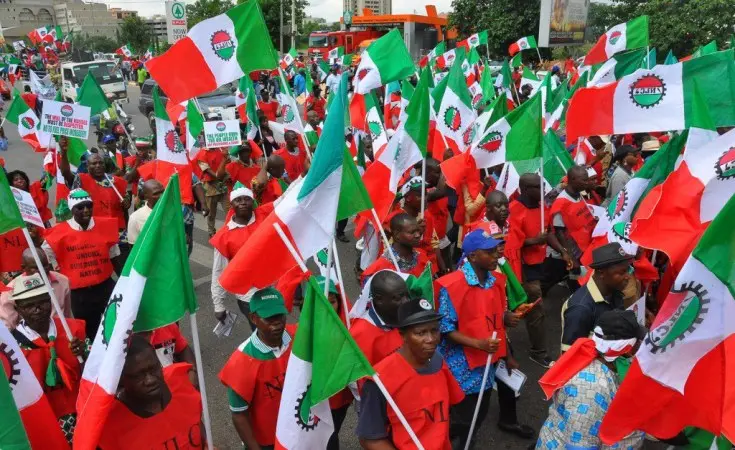The NLC stresses aligning the new minimum wage with economic conditions
Before negotiating next year’s new minimum wage, the Nigeria Labour Congress insists that only an amount reflecting the current economic situation will be accepted.
Mr. Joe Ajaero, the President of NLC, conveyed this message during the 19th edition of the NLC 2023 Harmattan School held in Abuja on Tuesday.
The Harmattan School is a training program organized by NLC for its affiliated unions to enhance skills development, as reported by the News Agency of Nigeria.
Represented by Mr. Benjamin Anthony, the Vice President of NLC, Ajaero emphasized the need for governments at all levels to acknowledge the increasing difficulty of life and living conditions.
The challenges faced by working people have gotten worse due to the removal of subsidies on petrol. This is causing a lot of pain and making inflation, inequality, and poverty increase.
A workforce that is motivated and paid well has a positive impact on productivity and the development of the nation. As we look forward to discussing the National Minimum Wage in 2024, we want everyone involved to understand that this is a chance to agree on a wage that matches the current cost of living.
The NLC president stated that the main aim of labor is to have a wage that allows people to live comfortably, covering their living expenses and leaving room for savings.
He strongly criticized the recent attack on workers and their leaders in Imo State.
According to Section 40 of the 1999 Constitution of Nigeria and ILO Conventions 87 and 98, the assault goes against the principles of freedom of association and collective bargaining.
Everyone with good intentions should strongly condemn this. The only way to ease our pain is for the Imo government to address labor issues, bring back ‘ghost workers,’ pay all outstanding salaries and pensions, and reinstate victimized workers.
The ILO Country Director for Nigeria, Dr. Vanessa Phala, mentioned that the world of work is changing rapidly due to technological advances and climate change. In this context, it’s crucial to reflect on the role of organized labor in policy engagement and dialogue.
